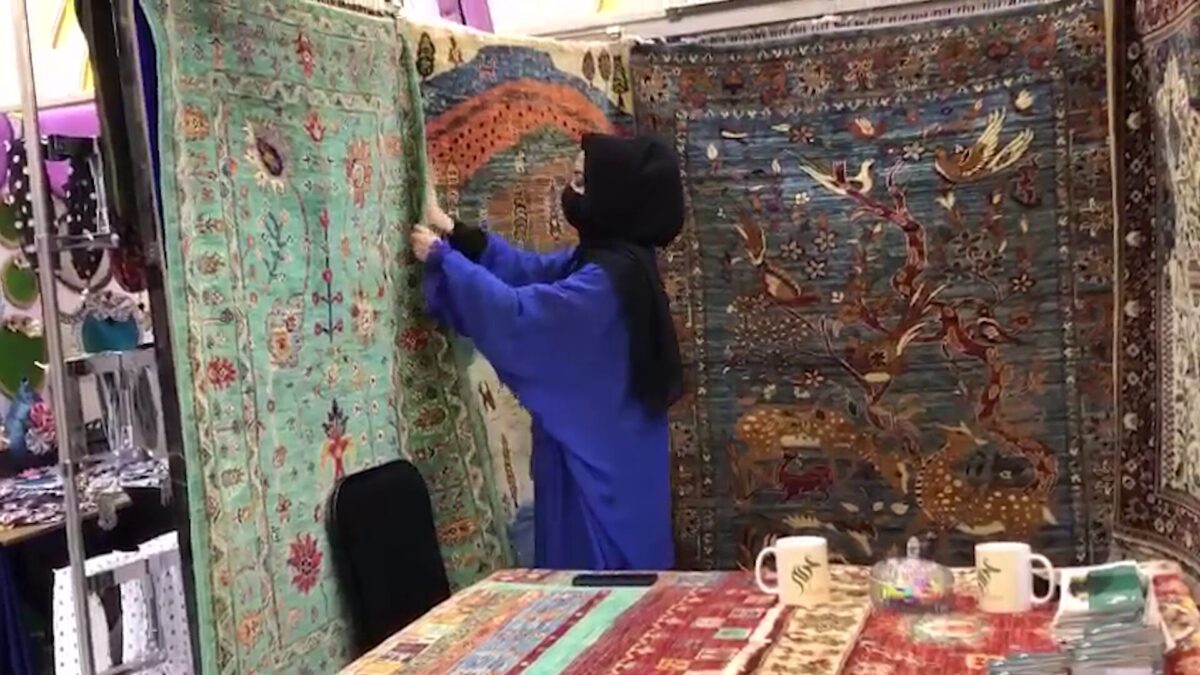At the Imam Abu Hanifa Trade Fair in Kabul, several women have spoken out against the challenges they face under Taliban rule, citing the restrictive policies and financial pressures that have hampered their businesses. The women report declining sales, market stagnation, and heavy tax burdens as they struggle to sustain their livelihoods.
For many, the future looks uncertain. Khadija, who was studying medicine at a private university until the Taliban barred her from continuing her education, now stands beside her display of handmade carpets. “The Taliban’s restrictions have taken me away from my books and into a world of weaving,” she said, clutching brightly colored threads. “But I still hold onto hope.”
Khadija Mohammadi, a carpet trader, highlighted the specific difficulties she and other women entrepreneurs face. “We’re dealing with three main challenges: first, exporting our carpets abroad is nearly impossible due to logistical obstacles. Then there’s the tax burden, which is heavy, especially now that there’s no real market or buyers to cover the costs. And this year, booth rental prices have gone up significantly compared to past fairs,” she explained.
Women attending the fair are grappling with these obstacles as they try to maintain their businesses under increasingly difficult circumstances. Raqia Sayyadi, a former ninth-grade student, turned to selling traditional Afghan clothing after being unable to continue her education. She has seen a sharp decline in sales compared to previous years. “The market just isn’t what it used to be. People come to look, but they don’t buy. Shop rents have increased, and with limited imports and exports, things are tougher than ever,” she said.
The trade fair, which runs for a week, features 700 booths showcasing products from various sectors, including agriculture, industry, mining, healthcare, banking, handicrafts, and women’s entrepreneurship.
Although 150 booths have been allocated specifically for female entrepreneurs, many of them are contending with the Taliban’s restrictions and the broader economic difficulties facing the country.




